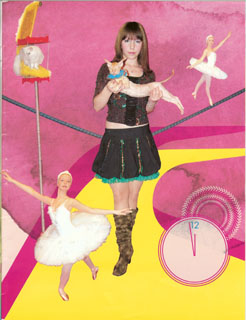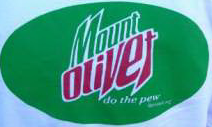Sometimes It Pays to Be Pro Se
Can you imagine if an attorney tried this?
In Microsoft Corp. v. Marturano, Microsoft sued John Marturano, d/b/a J & T Computers and Parts, in the Eastern District of California for allegedly distributing counterfeit and infringing software despite Microsoft’s requests that he cease and desist from such conduct.
Mr. Marturano, proceeding pro se, timely filed an answer.
In July 2007, Microsoft served Mr. Marturano with interrogatories and requests for production of documents. However, its requests were returned as undeliverable. After repeated attempts to locate the defendant, in November 2007 Microsoft filed a motion to strike his answer and for an order of default. Mr. Marturano did not oppose the motion.
The court held a hearing in December 2007. Mr. Marturano did not appear. From July to December 2007, Microsoft and the court both tried to contact him but were unable to do so. The magistrate judge then issued findings and recommendations that the defendant’s answer be stricken and default be entered against him. In February 2008, the district court judge adopted the magistrate’s findings and recommendations, and found the defendant to be in default.
In March, Microsoft filed a motion for default judgment and permanent injunction. Mr. Marturano still did not respond. However, he showed up at the hearing in April. The magistrate judge then denied Microsoft’s motion and instructed the defendant that he could file a motion to set aside the default.
Mr. Marturano did so. On July 1, the magistrate judge granted the defendant’s motion and vacated his findings and recommendations recommending that default be entered and the defendant’s answer be stricken.
The case is now back to square one. While Mr. Marturano may have had good reason to disappear for six months, this is a difficult result for a party that followed the rules and deserves quick and efficient justice as much as anyone else. One year has now elapsed since Microsoft served its discovery requests, and it presumably still does not have the basic information it requested. Nor does it have anything to show for the motions it brought and hearings it attended stemming from the defendant’s failure to follow the rules and participate in the case.
The case cite is Microsoft Corp. v. Marturano, No. 06-1747 (E.D. Calif.) (Austin, M.J.).
Western District Trademark Lawsuits Up in First Half of 2008
The Western District saw an uptick in trademark lawsuits in the first half of 2008.
From January 1 to June 30 of this year, plaintiffs filed 22 new lawsuits in the Western District that PACER recognized as being “trademark” suits. That’s up from 16 during the same period last year, though down from 30 in the first half of 2006.
Eighteen of the 22 cases were filed in Seattle. The rest were filed in Tacoma.
If I were inclined to see the glass as half empty, I’d bemoan my not blogging in David Donoghue’s neck of the woods. The Chicago IP Litigation Blog saw a whopping 68 new trademark cases filed in the first half of 2008 in the Northern District of Illinois. Not to mention the 126 new filings Ron Coleman and Marty Schwimmer got to choose from out of the Southern District of New York. As any blogger can attest, such a steady stream of new content possibilities is a fortunate thing indeed.
I suppose I should just be glad this blog isn’t called the “Spokane Trademark Lawyer.” Nothing against Spokane, but the Eastern District of Washington had no new trademark cases during the first half of this year. It had only one such case filed in the first half of 2007, and one in the first half of 2006.
On the other hand, with only a couple posts per year I’d have a lot more free time.
Russian Clowns Sue Seattle Repertory Theatre Over Alleged Copycat Show
Counterfeit cat theater?
Last month, father-and-son Russian clowns Yuri Kuklachev and Dimitri Kuklachev filed suit in the Eastern District of New York against alleged impostors who have passed themselves off in the United States as the plaintiffs’ Moscow Cats Theatre troupe.
Among the defendants is the Seattle Repertory Theatre, which allegedly staged some of the “copycat” performances.

A promotional graphic from the defendants’ Web site
The complaint states the “Kuklachevs are world-famous clowns whose names are household names in many countries and among cat-lovers worldwide. Through the use of proprietary animal training methods, developed by Yuri Kuklachev, Plaintiffs became widely recognized as the world’s first performers to successfully train and perform tricks with such notoriously stubborn animals as cats.”
The complaint alleges that plaintiffs hired defendant Mark Gelfman to help market their tour. It claims that once plaintiffs left the United States, Mr. Gelfman filed a trademark application to register MOSCOW CATS THEATRE in the United States in his own name; registered the MoscowCatsTheatre.com domain name; and hired the other defendants to perform under the MOSCOW CATS THEATRE name and mark.
“The performances conducted by Defendants under the ‘Moscow Cats Theatre’ mark are very similar in nature to the ones performed by the authentic Kuklachev’s Moscow Cats Theatre, targeting the same audiences, in the same venues, using the same promotion methods,” the complaint states. “Even the [defendants’] cat show performer dresses in a very similar clown suit, wears similar makeup, hairstyle, and acts in a way very similar to Kuklachev, leading to numerous cases of actual mistaken identity by the audience.”
The complaint claims federal and common law trademark infringement, dilution, cybersquatting, and violation of plaintiffs’ rights of publicity.
Neither Mr. Gelfman nor most of the other defendants (including the Seattle Rep) has yet appeared in the lawsuit or answered plaintiffs’ complaint.
The case cite is Kuklachev v. Gelfman, No. 08-2214 (E.D.N.Y.).
Props to the Slog for breaking the Seattle angle of this story.
Hendrix Electric Vodka Case Doesn't Settle in Mediation; Motions Pending
 The parties’ trademark claims in Experience Hendrix, LLC, v. Electric Hendrix, LLC — regarding the defendants’ ability to use Jimi Hendrix’s name, likeness, and signature in connection with their vodka products — will be decided on summary judgment. Or at trial. Or both. But by the looks of the Notice of Occurrence of ADR Procedure the parties’ mediator filed on June 27, the case isn’t going to settle.
The parties’ trademark claims in Experience Hendrix, LLC, v. Electric Hendrix, LLC — regarding the defendants’ ability to use Jimi Hendrix’s name, likeness, and signature in connection with their vodka products — will be decided on summary judgment. Or at trial. Or both. But by the looks of the Notice of Occurrence of ADR Procedure the parties’ mediator filed on June 27, the case isn’t going to settle.
The notice states the parties mediated the case on June 26 but “did not reach a settlement.”
The parties have three pending motions for summary judgment: two by the plaintiffs and one by the defendants. Last week, Western District Judge Thomas Zilly struck all court deadlines in the case pending his disposition of these motions. Oral argument is scheduled for July 11.
Case background here, here, and here.
The case cite is Experience Hendrix, LLC v. Electric Hendrix, LLC, No. 07-338 (W.D. Wash.).
PepsiCo Shines in Gentle Demand Letter to Church
 A reader emailed me a photo of her church’s new t-shirt design. It looks like Mountain Dew’s. The church’s slogan? “Do the Pew.” The reader thought something was wrong with borrowing someone else’s logo. She’s got good instincts. The problem, of course, is with dilution by blurring, since it’s not likely anyone would actually think that PepsiCo, Inc., had gotten into the church business.
A reader emailed me a photo of her church’s new t-shirt design. It looks like Mountain Dew’s. The church’s slogan? “Do the Pew.” The reader thought something was wrong with borrowing someone else’s logo. She’s got good instincts. The problem, of course, is with dilution by blurring, since it’s not likely anyone would actually think that PepsiCo, Inc., had gotten into the church business.
PepsiCo rightly objected to this use, and it did so with a lot of class. Rather than jump on the church’s misstep, the company explained why it needed the use to stop:
“The MOUNT OLIVET logo closely resembles PepsiCo, Inc.’s registered MOUNTAIN DEW trademarks in both stylization and color. Such use wrongly trades on the goodwill of our brand and could lead to consumer confusion by creating the impression of a sponsorship or association with MOUNTAIN DEW soft drinks. In addition, by mimicking our famous MOUNTAIN DEW logo and federally-registered DO THE DEW advertising slogan, the distinctiveness of our trademarks are diluted.
“I trust you will not proceed with producing and selling the t-shirts.”
Firm but fair.
Under the circumstances, this is a model cease-and-desist letter. If PepsiCo had acted like a jerk, its letter would find its way into someone’s blog. Even though it didn’t act like a jerk, its letter still found its way into someone’s blog. But this way, PepsiCo comes off as a class act.
Let’s hope the church understands and comes up with an original design for its shirts.